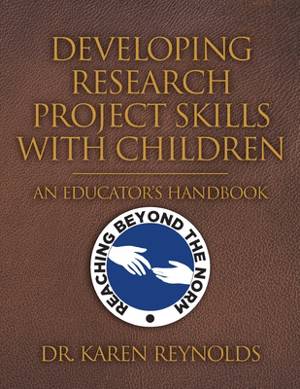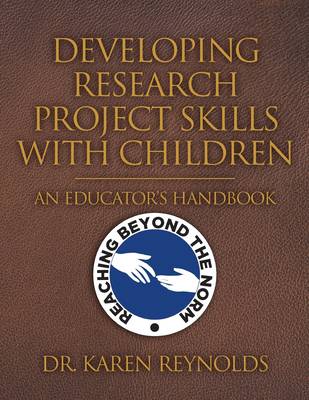
- Retrait gratuit dans votre magasin Club
- 7.000.000 titres dans notre catalogue
- Payer en toute sécurité
- Toujours un magasin près de chez vous
- Retrait gratuit dans votre magasin Club
- 7.000.0000 titres dans notre catalogue
- Payer en toute sécurité
- Toujours un magasin près de chez vous
Developing Research Project Skills with Children
An Educator's Handbook
Karen ReynoldsDescription
The title Developing Research Project Skills with Children, embraces the concepts development and with. Development with signals dialectical involvement among the researcher, policies and practices, and human and material resources. That is, we are changed by our engagement with people, objects, and practices inasmuch as such engagement changes human and material resources. Childhood curiosity, their delight in asking questions, and commitment to fairness are important qualities for a novice researcher.
My experiences teaching young children led me to believe that they want opportunities to learn that honor their interests and provide a forum for their voices. In addition, students enjoy working freely within and across non-invasive structures. Psychological safety may be generated by structures such as circles.
This handbook outlines an emancipatory approach to childhood research that ignites excitement among participants. Children want opportunities to learn on their own terms. They seek the freedom to pursue their interests from the perspectives of their lived experiences. An emancipatory approach to childhood project research locates control with the student. Within this context, the student defines the main research topic, constructs research questions, determines information gathering techniques, creates products that illuminate key ideas, demonstrates understanding of preliminary data-analysis procedures, and develops findings, reporting, and recommendations. Freedom of choice, independent and creative thinking skills, planning strategies, and diversification of product and process promises enhanced self-esteem and self-efficacy.
Stage 1 of the planning process guides the child to enter a topic of interest in the center circle. Next, he/she enters four research questions, one in each remaining circle. Stage 2 of the planning process guides the child to record what they already know about the research questions. The four circles in Stage 2 are located on a separate page from Stage 1. Within this context, previously learned information regarding a concept enhances understanding of new knowledge. Students also enter the names of diverse information sources and products in the relevant circles. These additions will be used to communicate key aspects of the study from a multimodal perspective.
Spécifications
Parties prenantes
- Auteur(s) :
- Editeur:
Contenu
- Nombre de pages :
- 30
- Langue:
- Anglais
Caractéristiques
- EAN:
- 9781098000776
- Date de parution :
- 09-06-22
- Format:
- Livre broché
- Format numérique:
- Trade paperback (VS)
- Dimensions :
- 216 mm x 279 mm
- Poids :
- 95 g

Les avis
Nous publions uniquement les avis qui respectent les conditions requises. Consultez nos conditions pour les avis.






